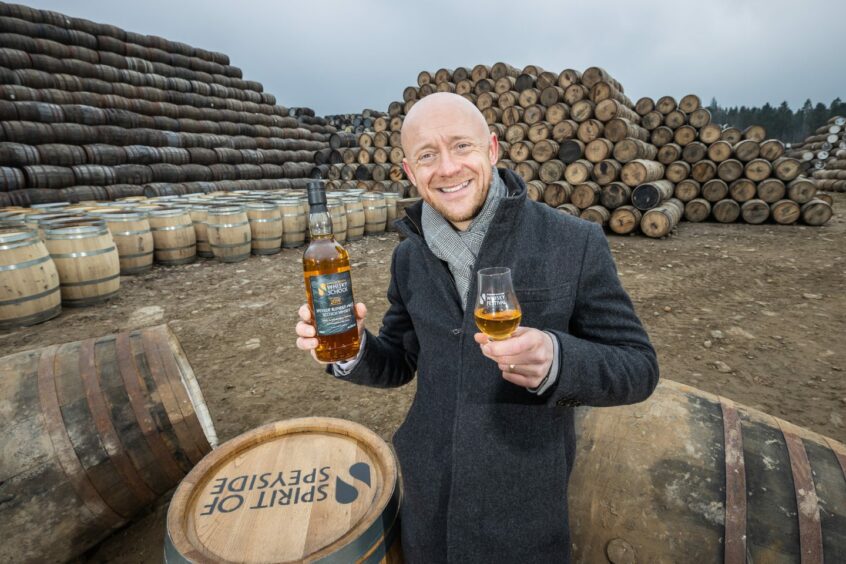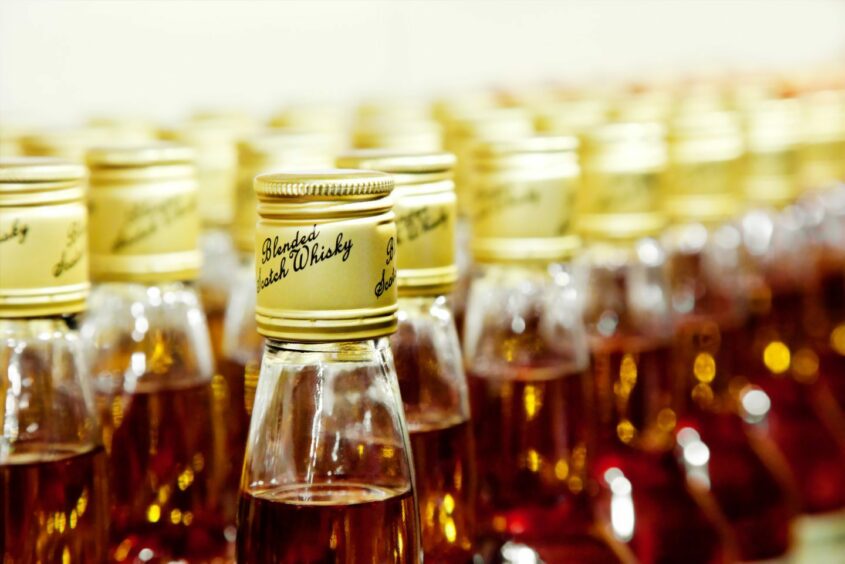Whisky is part of the very fabric of Scotland, and the water of life has enduring appeal not just at home but worldwide.
Last year saw record figures with the value of global exports reaching £6.2 billion, and so far this year the value of exports has remained steady.
The Scotch Whisky Association (SWA) recently revealed data for the first half of this year showed the export value was £2.57bn, which is down 3.6% compared to the same period last year.
Information on the industry body’s website says there are 53 bottles of Scotch whisky exported around the world each second.
It seems there’s plenty to raise a glass to, but it’s not just exports contributing to the dram good success of the industry.
Whisky distilleries, visitor centres and festivals are also part of the blend with the rise of whisky tourism in recent years.
Across the country there are 146 distilleries as of July this year, with a wealth of them in the north and north-east.
Range of investments in facilities
There have been a number of investments around the country in distilleries and visitor centres.
These include the Gordon & MacPhail multi-million pound investment in its Elgin shop to create a new whisky attraction, which is expected to open next year.
The firm also opened its Cairn Distillery near Grantown-on-Spey earlier this year.
While Chivas Brothers has invested £88million into Aberlour and Miltonduff distilleries. The investment at Aberlour will see a new visitor centre, and it is expected to open 2025.
Near Forres the new Dunphail Distillery and visitor centre opened last month after a multi-million pound investment led by Bimber Distillery.
Other facilities undergoing restoration or expansion work include Glenallachie Distillery in Aberlour, the Cabrach Distillery and the Glenglassaugh Distillery near Portsoy.
‘One of Scotland’s most valuable commodities’
David Jackson, VisitScotland regional director for Aberdeen, Aberdeenshire and Moray Speyside, spoke of the value of whisky to Scotland.
He pointed to the importance of authenticity and provenance for visitors, with distilleries offering visitors a chance to explore their history and heritage through blending experiences, masterclasses, tastings and more.
He said: “Whisky is one of Scotland’s most valuable commodities, with visitors from around the world coming to our shores to experience an authentic Scottish dram.
“The north-east is extremely fortunate be home to a plethora of world-class distilleries, as well as the Malt Whisky Trail and events like the Spirit of Speyside Whisky Festival, which had its busiest ever year.
“The whisky industry creates jobs and sustains communities and is recognising the rewards of whisky tourism by investing in and improving the visitor experience. Scotch whisky producers have invested in distillery visitor centres, their staff and shops to ensure their guests get the best possible experience.
“Scotland’s reputation as a quality destination relies on the continued investment and innovation of the Scotch whisky industry.”
Taste of success for festival
Earlier this year the Spirit of Speyside Whisky Festival, which was first launched in 1999, attracted more than 2,500 visitors from more than 35 countries including Germany, Japan and the US. More than 7,000 tickets were sold for events.
And at the start of September it is gearing up for its latest event – Spirit of Speyside: Distilled. Taking place at Elgin Town Hall on September 1 and 2 it will unite distillers in Speyside under one roof. There will also be brewers, gin crafters and local food at the event.
Speaking about the appeal of such events, George McNeil chairman of the festival said: “The beauty of The Spirit of Speyside Whisky Festival is that it appeals to whisky connoisseurs and absolute beginners alike and that’s because there is something for everyone.
‘Appetite shows no sign of waning’
“While the main draw is without a doubt the outstanding calibre of Speyside’s distilleries – many of which only open during the festival, visitors also combine the festival with a chance to explore the region and all it has to offer. While whisky is the primary ingredient of every festival event, many combine Speyside’s exceptional local produce, traditional ceilidh music and even outdoor activities such as trail running or canoeing.”
Mr McNeil said there’s “definitely” been a surge in interest in the whiskies of the region, and pointed to the “unprecedented” demand they have experienced for the upcoming Spirit of Speyside: Distilled.
He said: “Post-Covid, there is a desire to travel again and experience the distilleries first hand. A great example of this is Speyburn distillery. Speyburn opened its doors to the public for the first time during the festival to great success. The tours sold out within 12 hours and went on to win ‘best new event’ at the festival. The distillery is now offering tours permanently – a testament that shows the appetite for whisky shows no sign of waning.”
What is Scotch whisky worth?
Although exports have remained steady compared to the same time last year, the volume of exports fell by 20% – which ties in with the trend of premiumising by consumers – where they drink less units of alcohol but buying higher value products.
Graeme Littlejohn, director of strategy and communication at the Scotch whisky Association said this was a good thing for the industry, and explained: “In the spirits category, particularly whisky, we have an opportunity to premiumise, or consumers have an opportunity to premiumise within the spirits category in a way that perhaps they can’t with other higher volume products, like beer, for example.
“So that’s a good thing for the Scotch whisky industry in the in the long run, that’s a trend we expect to continue to see both in the UK and overseas.”
He added: “That in turn attracts more people to Scotland to see the industry firsthand. There’s over 70, Scotch whisky visitor centres now across the country and distilleries or elsewhere. These are attracting upwards of 2 million visitors a year.
“That’s a great thing for the Scottish economy, it also benefits other parts of the economy like hospitality, which is really important at a time when there is that cost-of-living crisis.”
Asia Pacific region a growing market
The recent figures from the SWA showed the US remains Scotch whisky’s biggest export market by value.
Last year it was the industry’s only market with exports valued at more than £1bn.
Exports in the first half of this year were valued at £437m. This was followed by France with £ 235m in exports. However, the Asia Pacific region is emerging as an important area of growth for exports.
Exports by volume for the first half of this year were 88m for France, 72m for India and 59m for the US.
‘A growing and popular drink’
Mr Littlejohn said: “Scotch whisky is a is a growing and popular drink around the world particularly in some markets – India, other Asia Pacific markets, South America, and then growing back in the US after a period of tariffs.”
Last year was an “exceptional” year for exports he said, with factors such as markets restocking after the pandemic and global travel and retail picking back up again contributing.
Mr Littlejohn said: “If you compare the first half of this year to 2019 period, the value of Scotch whisky exports is up by about 18%, compared to where it was in 2019, and is up by about 5%. In volume terms, so there’s a new kind of baseline for Scotch whisky exports, which we have to kind of mark ourselves against.
“2023 is certainly kind of keeping pace with that so far, there’s a huge number of areas where Scotch whisky benefits the Scottish and wider UK economy – exports is one of them. Scotch whisky, of course has to be produced in communities across Scotland, so they derive the economic benefit of growing global exports.”
‘Support for the exporters of tomorrow’
He added: “So it’s a good news story when we see Scotch whisky exports going up by volume and value over the last decade or so because that means more jobs and more opportunities across communities.”
Going forward there are concerns over the impact on the industry of an inflationary tax increase of 10.1% after the end of the freeze to alcohol duty. There are hopes for more support for the sector, with Mr Littlejohn saying: “We want to see a more supportive home market for Scotch whisky so small and mid-sized companies can start up and scale up and grow for the future, and they will be the exporters tomorrow as we continue to reduce trade barriers around the world.”





